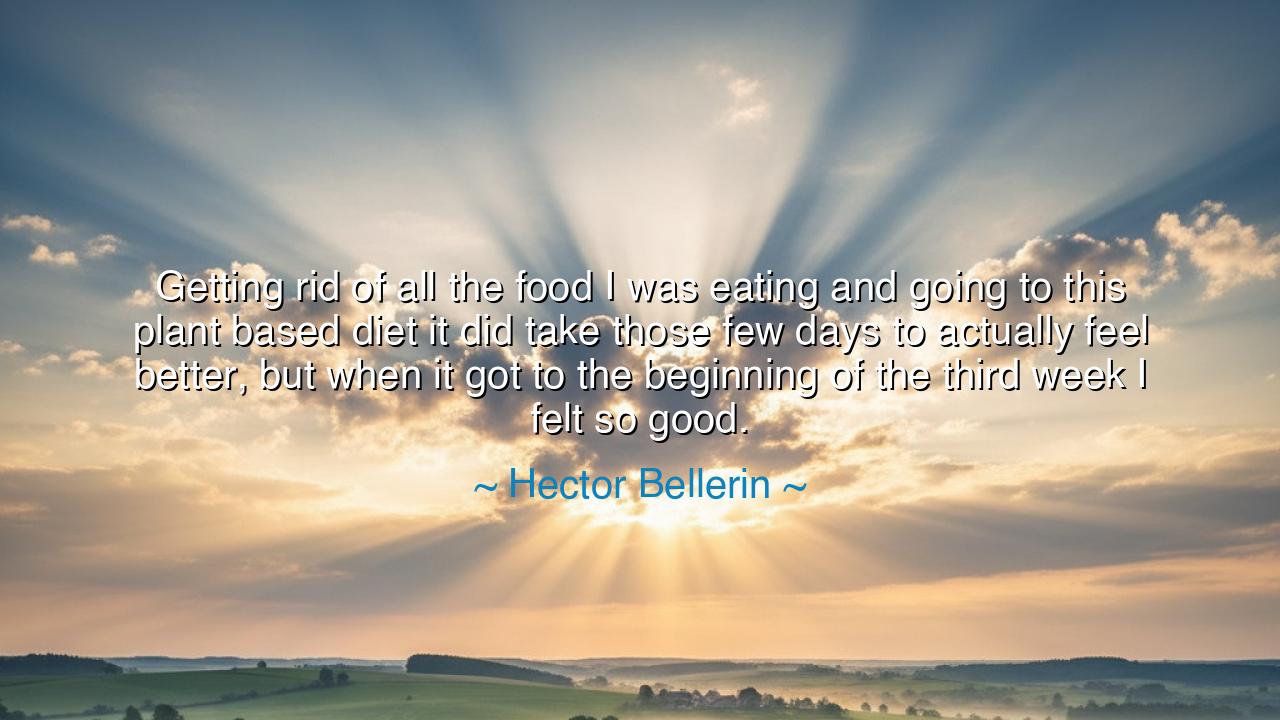
Getting rid of all the food I was eating and going to this plant
Getting rid of all the food I was eating and going to this plant based diet it did take those few days to actually feel better, but when it got to the beginning of the third week I felt so good.






In the words of Héctor Bellerín, the footballer whose body is his temple and whose discipline is his creed, there lies a timeless revelation: “Getting rid of all the food I was eating and going to this plant-based diet, it did take those few days to actually feel better, but when it got to the beginning of the third week, I felt so good.” Though spoken in our modern tongue, these words echo the wisdom of the ancients — the truth that renewal is born only through sacrifice, and that true strength does not arise from indulgence, but from purification.
In every age, there have been those who sought to cleanse themselves — not only of impurity in body, but of burden in spirit. The act of renouncing the old, of stripping away the familiar comforts that bind us, is an act of courage. When Bellerín speaks of “getting rid of all the food” he once ate, he speaks not merely of changing diet, but of shedding the old self, the one dulled by habit and weighed down by the excesses of the world. It is a ritual of transformation, like the serpent who casts its skin in the sun, emerging renewed and radiant.
The plant-based diet, then, becomes a symbol — not merely of physical sustenance, but of a deeper alignment with the rhythms of nature. For the ancients, plants were not food alone; they were the essence of life itself, born of earth, water, and sunlight, carrying the pulse of creation in every leaf and grain. To partake of them purely is to harmonize the inner life with the great cycles of the universe — to eat not from hunger alone, but from reverence. In choosing this path, Bellerín follows a lineage of seekers — from Pythagoras, who taught that the soul grows clear through abstaining from the slaughter of life, to the monks of the East who found peace in the simplicity of the leaf and the seed.
Yet he does not hide the struggle. He speaks of those first few days — the days of discomfort, when the body mourns what the spirit has already rejected. Every transformation begins with resistance. Just as iron must feel the fire before it becomes the sword, the flesh must endure the pangs of withdrawal before it can know vitality. The beginning of the third week — that is the dawn, the moment when the body, cleansed and realigned, begins to sing with new energy. It is the proof that the pain of change is but the shadow before awakening.
History offers many such awakenings. Recall Mahatma Gandhi, who once sought to heal both his spirit and his people through simplicity of diet. He found that to eat purely was to think purely, to act purely. His vegetarianism was not mere custom — it was resistance to the violence of greed, and devotion to the harmony of life. Through restraint, he found power. Through simplicity, he became unshakable. So too does Bellerín, though an athlete of our time, echo that same sacred rhythm — the call to rise above what pleases the tongue and reach for what strengthens the soul.
This teaching, though wrapped in the garments of nutrition, is truly about discipline, rebirth, and the search for harmony. The body, when purified, becomes a vessel for clarity. The mind, freed from the weight of indulgence, becomes light enough to touch wisdom. To live thus is not a denial of pleasure, but the rediscovery of true joy — the joy of health, balance, and unity with the living world.
So let us learn from this, O listener: the path to feeling “so good” is not paved with ease, but with endurance. Begin by examining what you consume — not only the food upon your plate, but the thoughts, the images, the words you allow into your heart. Cleanse them. Simplify them. Let the first days be hard, for they must be — but know that by the third week, the dawn will rise within you, and your strength will sing like the morning sun.
Drink of the earth’s bounty, respect its cycles, and treat your body as the sacred vessel it is. For the ancients have taught, and Bellerín reminds us still: the path to vitality begins in surrender — and ends in freedom.






AAdministratorAdministrator
Welcome, honored guests. Please leave a comment, we will respond soon